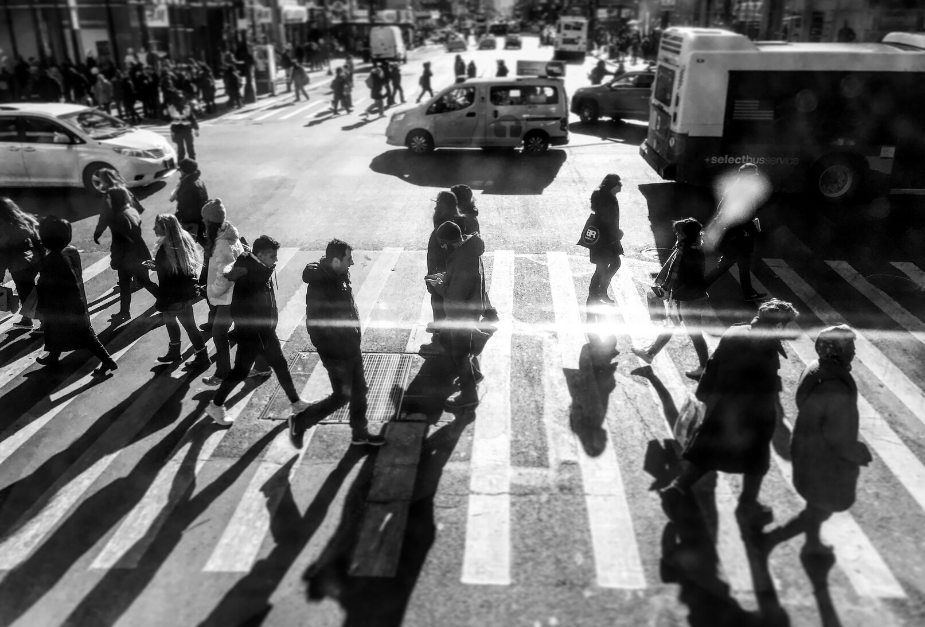What Was Wrong with the World of Work?
The prevailing social narrative, and the arising notion that we are returning to work, or entering a new norm, post-COVID-19 is misleading.
The reality is, COVID-19 has forced the world of work, the institutions that make up that world, and the decision-makers in those institutions to acknowledge that the world of work was broken long before this pandemic. COVID-19 has made us all face the fact, that the algorithm that drove the world of work was making people sick. It defined work as happening in the office, for 40 plus hours per week, Monday to Friday. It demanded travel, extended hours away from home, and in doing so, pushed us to the pins of our white collars. ‘
That same algorithm presented a ‘computer says NO approach to flexibility forcing many, mainly mothers and those with caring responsibilities, to the sidelines of the paid workforce and into the unpaid workforce.
Quietly, the algorithm became the status quo. Disguised as ambition and fed to us success, it had created a different virus that led to burnout, mental health issues, presenteeism, absenteeism, work-related stress, and high levels of disengagement.
As we dashed from one commitment to the next we struggled to find work-life balance. As workers we were (usually) more efficient, effective and productive, knocking out 100% billable hours, we were always switched on to respond to clients and colleagues.
But as humans, as people who yearn to meaningfully connect with people, our basic needs were unmet.
Noticing that people were sick and that engagement was down, that same algorithm brought yoga mats into the board room, developed wellness initiatives, introduced EAP’s, and placed apples and bananas in the canteen. There were on-site doctors and hairdressers. ‘Lunch and learn’ soon followed.
The intention was good but presence and profit trumped wellness every single time...
Burnout.
Insomnia.
Creche drops off at 7am and pick-ups at 6pm.
Guilt.
Mortgage repayments.
Car repayments.
Thursday night treats bought with the money the ‘algorithm’ said you deserved.
Promotions.
Global Roles.
Long hours.
Less hours.
Slowly, and often silently, with the fear of looking weak or somehow appearing like a failure we rode a white knuckle emotional rollercoaster, as we gritted our teeth and tried to hold on for dear life. We cried, smiled, laughed, yearned and crumbled and resigned ourselves to the fact that we must wait until retirement to enjoy life.
That workplace algorithm failed us. It failed to give us the ‘permission’ to have a life while working. It failed to respect our needs as humans.
Somehow, taking time off to have children meant a choice. The choice to be a good parent, usually meaning mother or a professional. According to this algorithm, it wasn’t possible to be or do both, and if you did you were the expectation and not the rule. After all, you had to be in the office, present and visible to all, if you wanted to be taken seriously. Asking for a four day week, picking your child up from school, not staying late, negotiating flexibility, taking days to mind your sick child, and if you were always the first person to leave the office (even if you did it as quietly as possible), obviously you were not making the sacrifices demanded by the algorithm to be taken seriously, as a professional.
Working from home wasn’t really an option, as it didn’t meet ‘business needs’. The algorithm created on the needs of the business, and fantasy of the unencumbered worker, refused the notion that ‘and’s’ were possible and in doing so refused parents and carers permission to take part fully in life – to work, to care, and to spend time with those they love during their formative or vulnerable years. It forced women out of the workplace and men into the workplace.
Neither mothers or fathers, men or women, could win, both were refused permission to live life while earning a living.
The pre-COVID world of work was broken. Going back, or returning, to that world of work, the one based on that algorithm, serves only to defy our humanity and is not viable.
*Part Two, detailing suggested solutions for our broken work world, Sunday May 31st.
Sinead Brady, May 2020.
join us in conversation
we’d love to hear from you…
















